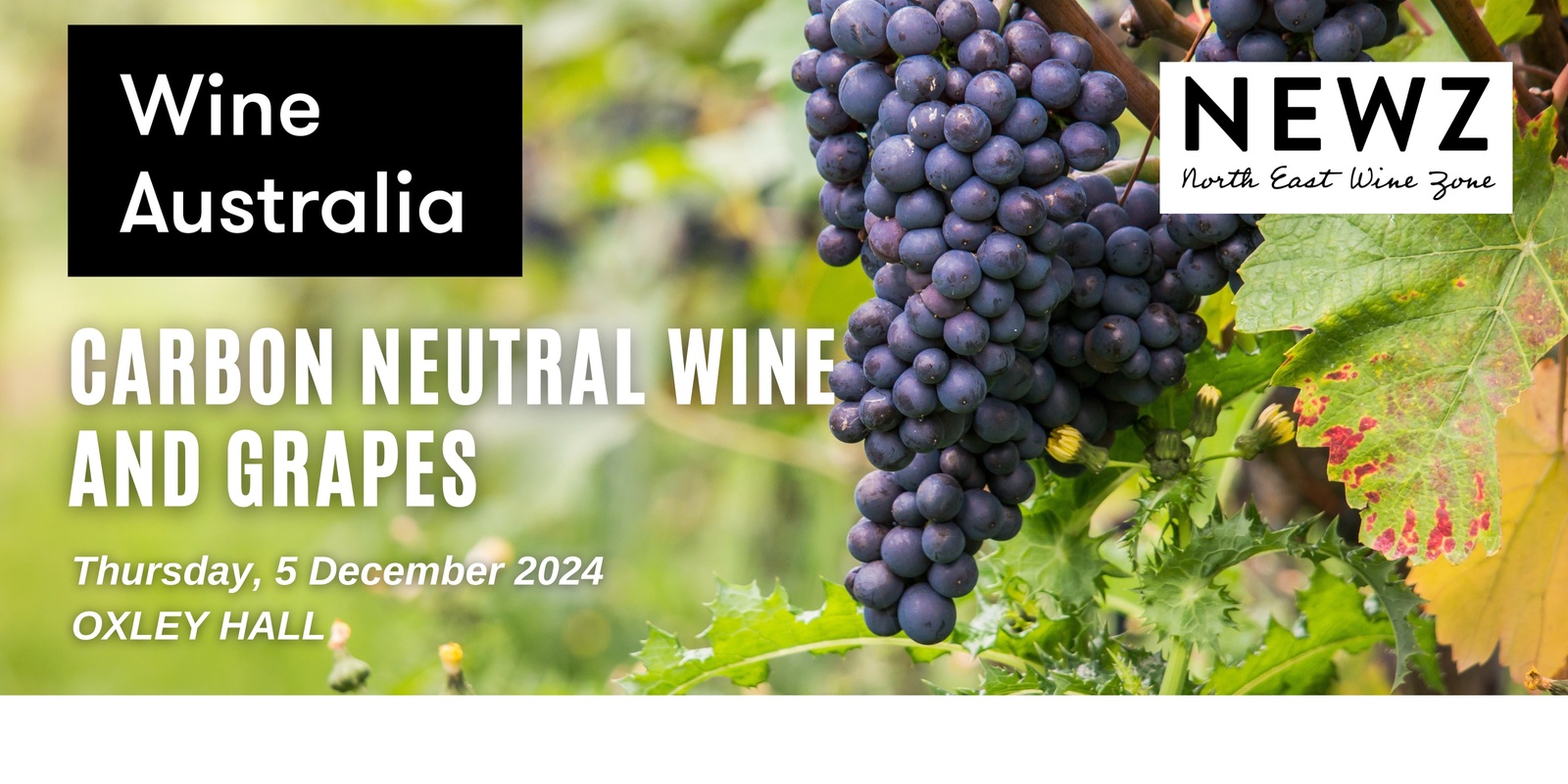Carbon Neutral Wine and Grapes - Oxley
Event description
This Wine Australia workshop has been developed in collaboration with Winemakers of Rutherglen to support growers and wine businesses in NE Victoria to take the first critical steps down the carbon emissions reduction path.
Presentations and resources will also align with Sustainable Winegrowing Australia (SWA) membership and credentialling (for those of you interested in this option), by demystifying carbon farming and explaining the opportunities and risks it can present in a typical grape-growing and wine-making business.
This one-day PILOT interactive workshop will draw on subject matter experts, local case studies, examples within the wine growing sector and the experience of participants.
The workshop is designed for anyone in a decision-making / management role working in a winegrape growing or wine-making business, who knows that joining the ‘carbon conversation’ is important to the future success of their business but is feeling confused or overwhelmed by the whole topic and how it applies to them.
Speakers:
- Julian Marchant - ESG Program Manager, Wine Australia
- Alex Sas, Viticulturist and senior R & D Program Manager, Wine Australia
Facilitated by
- Libby Tedstone, National Extension and Adoption Manager, Wine Australia
Biographies
- Julian Marchant leads Wine Australia’s sustainability program. Julian has spent over eleven years working in the environmental services industry, complemented by time spent in tourism and agricultural research. Julian has previously held in-house sustainability and consulting roles and has led emissions reduction projects for some of Australia’s largest organisations across the agriculture, infrastructure, property, logistics and retail sectors. Whilst working for sustainability consultancy, Edge Impact, Julian managed the Australian Wine Sector Emissions Reduction Roadmap on behalf of Wine Australia/
- Alex Sas is Senior Research & Innovation Program Manager with Wine Australia where he works with wine and grape producers to identify and invest in projects of importance to the sector. Alex has previously held roles as Chief Viticulturist for Accolade Wines/Constellation Wines, Viticulturist at The Australian Wine Research Institute/CSIRO and as Director of Vinehealth Australia. In his spare time he oversees the management of a vineyard in McLaren Vale, SA, where he’s attempting to reduce its environmental footprint while being conscious of a limited budget. Alex recently applied for and received approval from the Clean Energy Regulator to register a small planting of native species to offset emissions generated from the vineyard operations.
- Libby Tedstone joined Wine Australia in April this year, as the National Extension and Adoption Manager. Libby has previously held roles with Thresher Wines Group in the UK, the Wine Industry National Education and Training Advisory Council, Optometry Australia and Livestock SA. Libby is responsible for ensuring that useful practice change and technology arising from Wine Australia’s research and innovation investments are adopted quickly and effectively by growers and winemakers.
Harvest carbon neutral practices to benefit your business
At the end of this workshop, participants will be able to:
- List the factors driving the need to control the ‘carbon farming’ conversation in their businesses now and in the future.
- Define ‘insetting’, ‘off-setting’, ‘emissions intensity’ and other key ‘carbon farming’ terms and explain how they apply to their farming system and businesses.
- Explain what, why and how to measure, report and communicate their progress in reducing carbon emissions to get the most out of their emissions management journey.
- Explore how existing practices along the supply chain may impact a business's carbon footprint.
- Compare and contrast some examples of ‘quick and easy wins’, as well as some medium and longer-term changes that can be made within a business to build carbon credentials.
- Provide examples of a range of energy reduction management investments and practice changes with the potential to reduce business emissions while also increasing profitability.
- Draw on local and Wine Australia networks and expertise for support and the further information required to facilitate progress down the emission reduction path.
Tickets for good, not greed Humanitix dedicates 100% of profits from booking fees to charity


